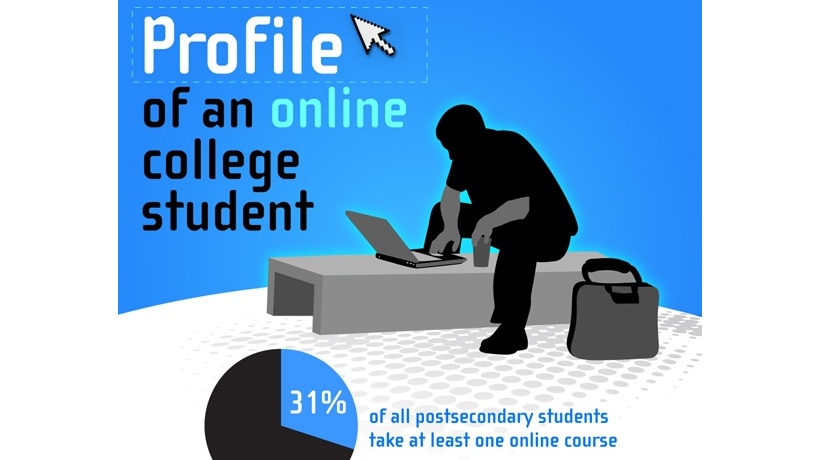Top 10 Online Resources For College Students
They are also helpful for everyone who believes in lifelong learning and that knowledge must be freely shared. So, let us take a closer look:
1. PaperWritings
With various student mobility programs, more young people than ever before chose to study abroad. While this opens great opportunities, it also has a downside: Many international students are grappling with writing up to academic standards of their target college due to insufficient language proficiency. This is when professional paper writing services save the day.
PaperWritings is a website where students can turn for editing, proofreading, and academic assistance. From tips on writing essays to in-depth research, everything to do with writing and education will be done according to specifications and deadlines.
2. Grammarly
Grammarly is a must-have app if you write anything apart from instant messages. It hunts down misspelled words, awkward phrasing, confused similar-sounding words, as well as grammatical and punctuation mistakes. It’s fully automated (there is no actual proofreader involved), so you must not feel embarrassed if you confused 'you’re' and 'your' again.
It has its own quirks, such as obsessively insisting on articles, even when they legitimately can be omitted, and zero-tolerance to passive voice. However, being a free app, it does an extraordinary job and is much more multifunctional that your vanilla built-in spellchecker.
3. Hemingway App
Hemingway App is an online editor that helps you to trim down and streamline your texts. It detects long sentences and complex phrases that are too difficult to understand. It also finds unjustified instances of passive voice, adverb overuse, and similar faux pas.
In line with its core concept of simplicity, Hemingway App has a very clean and minimalistic interface. However, it offers wide functionality. For instance, each type of error is color-coded, so you may see at once, where your weak spot lies and address the issue individually. Sometimes, Hemingway App may seem a bit overzealous, so it’s probably better for essays than for research papers written in academies. As much as we want to ditch this unruly style, many professors still demand fluency in overcomplicated academic jargon.
4. Evernote
Evernote is one of those apps that you find on almost any list of useful tools; for organized life, for time management, for teamwork, for writing a book, you name it. The reason is simple: Evernote is amazing, and those who tried it once will never want to switch for anything else.
The core features are those of a note-taking app, which makes it a go-to tool for students who prefer taking notes on a laptop. Smooth synchronization between devices will allow you to work on your projects on the go from your smartphone.
However, it’s just a tip of an iceberg. You can take recordings, snap photos, save links, handwriting, doodles, pieces of text, etc. Believe me, when the finals will be looming on the horizon, you will understand why you need all this in one place.
5. Dragon Dictation
Dragon Dictation and Dragon Anywhere are speech-recognition and text-editing apps. They allow you to dictate instead of typing which enables you to work on your endless essays using your mobile. The caveat? You must have an internet connection for adequate recognition. Plus, as it always is, you will have to train your app to recognize your voice and guess which word you would rather use in a given context. Yet after some time, the results are impressive.
The apps come from a wider array of speech recognition tools. While the developers offer various solutions with widely ranging prices for home users and professionals from all walks of life, these particular apps are free, which means they have an additional appeal for college students, who often have to live on a tight budget.
6. GoConqr
GoConqr is heaven for visual learners. This platform has it all - mind maps, flashcards, slides, flowcharts, quizzes, and notes. You can create your own study materials and share them with the community, or you can use ones from the vast library other users created. For collaborative learning, there are groups that connect like-minded users around the world. Mind you, there are more than two million of them, and this number includes both students and educators.
What is important, GoConqr is a cross-platform, so you can quiz yourself on the go while commuting or waiting in line at the supermarket, which is exactly what you expect from a flashcard format.
7. Getting Smart
As the name suggests, this website is dedicated to learning and cognition. It does not offer any concrete courses, yet it will be very useful for college students as it offers valuable information on how to learn effectively.
Deeper learning, peer learning, place-based learning, project-based learning, readiness and mindset, time management; every aspect of the theory is there. True, it’s aimed mostly at educators and parents, but learners themselves may find a plethora of valuable advice and insights in the mechanics behind the cognitive processes, best learning mechanics, and the future of education.
8. Coursera
Coursera is a collection of free online courses developed in collaboration with leading universities. You get certificates for course completion, so eventually, they may add up to a degree, which is a nice bonus in addition to the knowledge earned.
Each course is like an interactive textbook, featuring pre-recorded videos, quizzes, and projects. There is also a social platform where you can connect with other students for discussion and debates based on the course you are taking or your interests in general.
You can also join the community of developers or translators to make your contribution and help the project.
9. FastWeb
FastWeb is an online service that matches students with colleges that suit best their aspirations and their abilities. If you are a college-bound high school student, you might find great opportunities there. All you have to do is to fill out an online questionnaire with your GPA, preferred major, student activities and sports you are involved in, geographic preferences, and such. You will be offered a list of colleges which might interest you and are interested in students like you.
However, even for students who are already admitted, FastWeb is helpful. It enables you to look and apply for various scholarships that cover tuition costs. In fact, the name itself is an acronym for "Financial Aid Search Through the Web".
10. Open Culture
Open Culture is a non-profit project and a treasure-trove of information that you can use both for your research projects and for personal development. It offers an impressive collection of free lectures, Massive Open Online Courses (MOOCs) from renowned universities, many of them with certificates, free materials – textbooks, audiobooks, literature works, language lessons, movies for cultural studies and many, many more.
This is a great resource for lifelong learners and K12 students alike. It is robust enough so you can use it as your primary resource for independent education. As a college student, you will appreciate the wealth of materials available.







